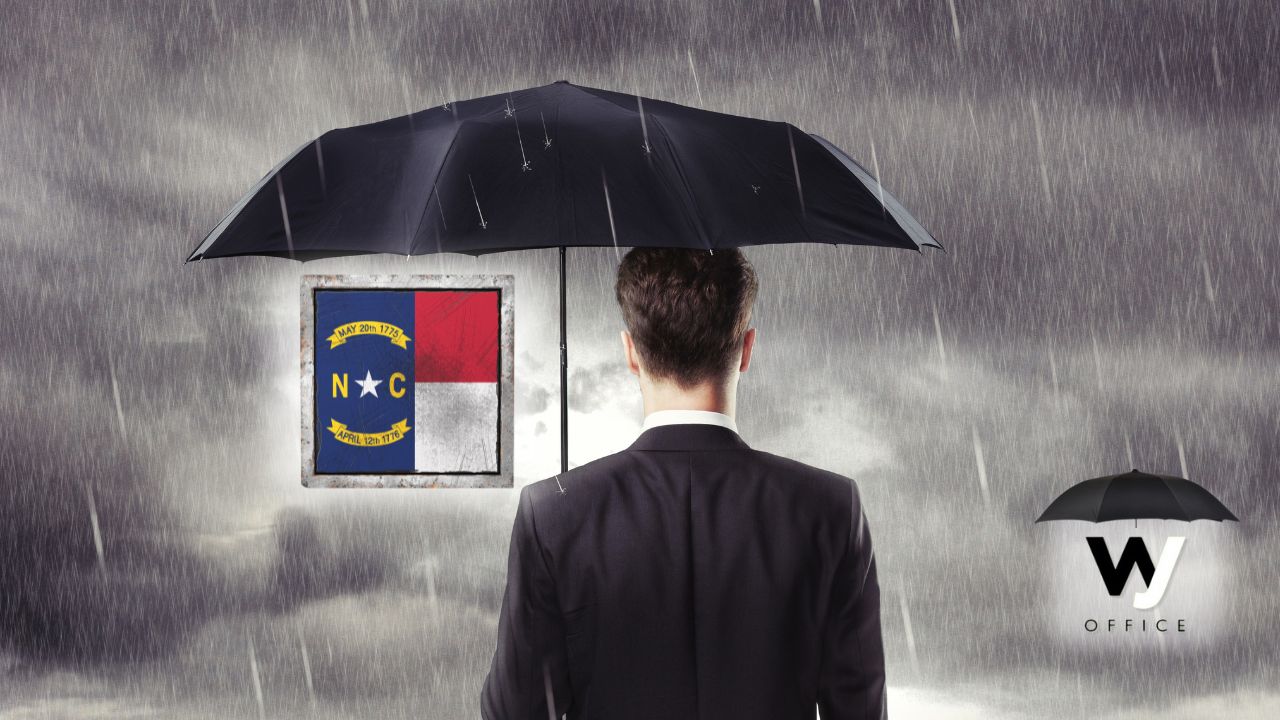
By Neville Chaney
Hurricane Helene brought with it a swath of devastation, leaving many North Carolina communities reeling from widespread flooding, property damage, and an immediate need for basic resources. Families, business owners, and entire towns found themselves grappling with losses that felt insurmountable. But in the face of these challenges, an extraordinary network of nonprofits, emergency responders, and community volunteers rose to the occasion, providing not only critical aid but also a reminder of human resilience and compassion. These organizations and individuals deserve our deepest gratitude for their unwavering commitment to North Carolina’s people and economy during this time of crisis.
Nonprofits: Cornerstones of Compassion and Consistency
North Carolina’s nonprofits demonstrated the strength of collective compassion, mobilizing resources and manpower to provide relief in the form of food, water, shelter, and financial assistance. Local organizations such as Samaritan’s Purse, Alliance Bible Fellowship Church, Brushy Fork Baptist Church, Hospitality House, and so many more deployed volunteers and aid almost immediately. They offered both immediate and long-term support. Their ability to rapidly assemble response teams, establish supply locations, and distribute essential supplies became lifelines for countless families and small business owners. The sustained support of these organizations beyond the immediate crisis ensures that people can focus on recovery without worrying about basic survival.
Many nonprofits also stepped in to provide more specialized forms of aid. For example, housing-focused organizations worked tirelessly to arrange temporary accommodations and financial assistance for those whose homes had been damaged or destroyed. Additionally, animal welfare groups mobilized to rescue and shelter pets left stranded or abandoned in the aftermath. These groups recognized that supporting the whole community means addressing needs both big and small, immediate and ongoing.
Businesses that could do so allowed their employees some leeway regarding attendance at their jobs without losing compensation. Many of those employees worked to get their personal lives in order and others volunteered to help their neighbors.
First Responders: Courage in the Face of Chaos
The selflessness of North Carolina’s first responders—firefighters, police officers, emergency medical technicians, and the National Guard—cannot be overstated. Often among the first to witness the devastation, they worked around the clock to rescue residents trapped in flooded areas, transport the injured to medical facilities, and secure dangerous zones. Their training and bravery saved lives and prevented additional tragedy, as they navigated treacherous conditions to reach those in need. By risking their own safety, first responders offered a critical stabilizing presence in what otherwise might have felt like chaos for those caught in the storm's path.
Beyond the rescue phase, first responders partnered with other agencies to assess structural damage, provide guidance on safe evacuation routes, and assist in efforts to clear debris, ensuring communities could start on the road to recovery more quickly. Their efforts to maintain order and prioritize safety set the groundwork for the nonprofits and volunteers who would carry the baton as the state transitioned from emergency response to rebuilding.
Volunteers: The Heart of Community Resilience
The role of volunteers in aiding North Carolinians post-Hurricane Helene highlights the power of everyday people rallying around their neighbors in times of need. Volunteers from across the state and even from far away arrived to distribute food and clothing, help clean up affected neighborhoods and lend emotional support to those dealing with losses. Churches, community centers, and local businesses served as hubs for volunteer activity, with individuals and families offering their time, skills, and resources to help the most vulnerable. Volunteers from First Presbyterian Church partnered with Water Mission from Charleston, SC to give away 1,000 generators to needy families.
One of the most inspiring aspects of the volunteer response was its organic and inclusive nature. Volunteers brought diverse skills, backgrounds, and perspectives, but all shared a unified goal of rebuilding and supporting their fellow North Carolinians. Whether they were helping clear mud from homes, cooking meals for evacuees, or simply lending a listening ear, these volunteers embodied the spirit of resilience and compassion that defines North Carolina’s communities. Their presence reminded flood victims that they were not alone and provided much-needed hope during a challenging time.
A Unified Effort for a Stronger Future
As the Southeast rebuilds and recovers from the impact of Hurricane Helene, we must take time to recognize the monumental contributions of nonprofits, responders, and volunteers. Their work not only provided tangible relief to those in immediate need but also bolstered the collective spirit of our region, demonstrating the power of unity in the face of adversity. These heroes serve as a reminder that even in our darkest hours, we are bound together by a common humanity and an enduring commitment to help one another.
In the months and years ahead, it is essential that we continue to support and invest in the infrastructure that allows nonprofits, first responders, and volunteer groups to mobilize in times of crisis. Their contributions were—and will always be—crucial to the wellbeing of our communities, as they stand ready to answer the call whenever disaster strikes.
Small Business
It would be a mistake not to take this opportunity to point out that small businesses need your support. They make up the fabric of the culture of all communities and are not missed until they are not here any longer. They have missed out on the visitors brought into the area during part of this football season, leaf season, and many are struggling to know how they will be able to make up the lost revenue. Everyone must consider their budget but try to find some dollars to support those companies that you find really special by purchasing the goods and/or services that they provide and make our life special in the High Country.

